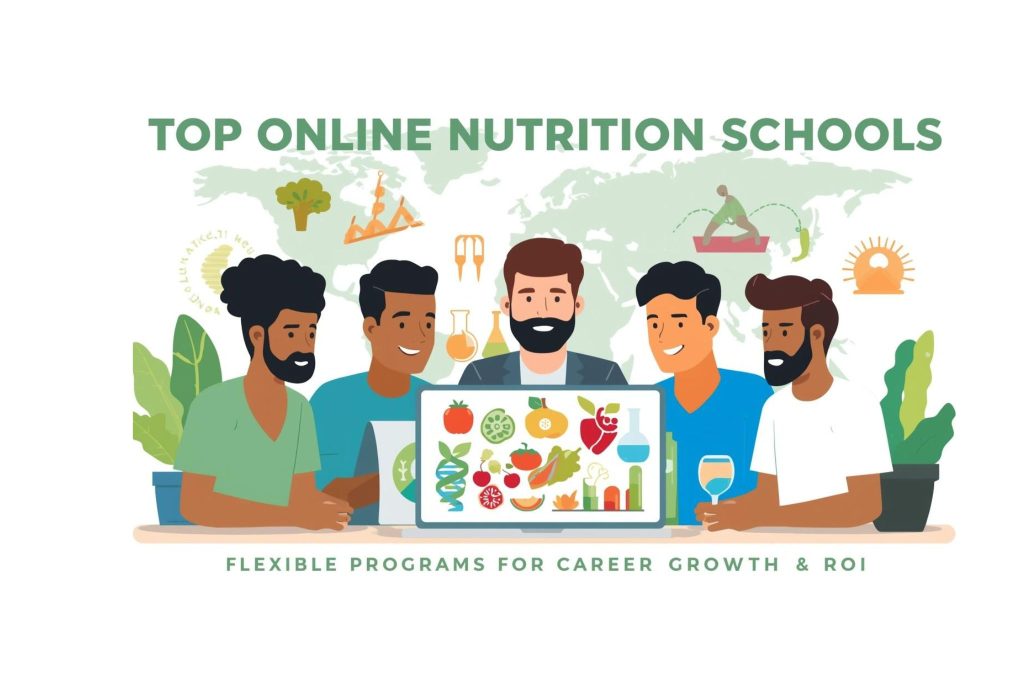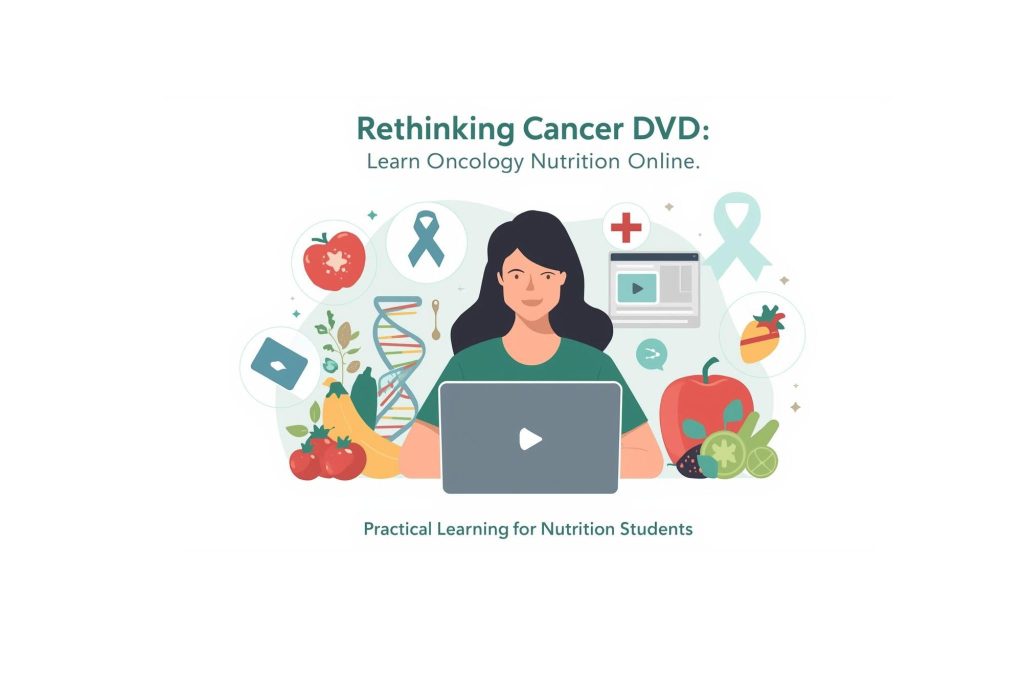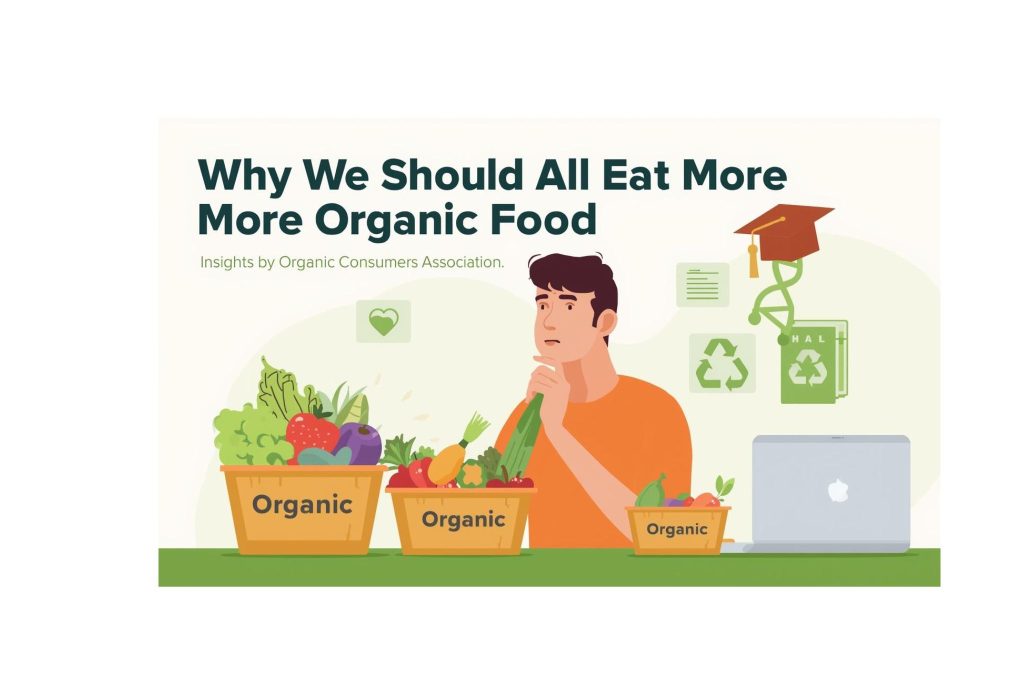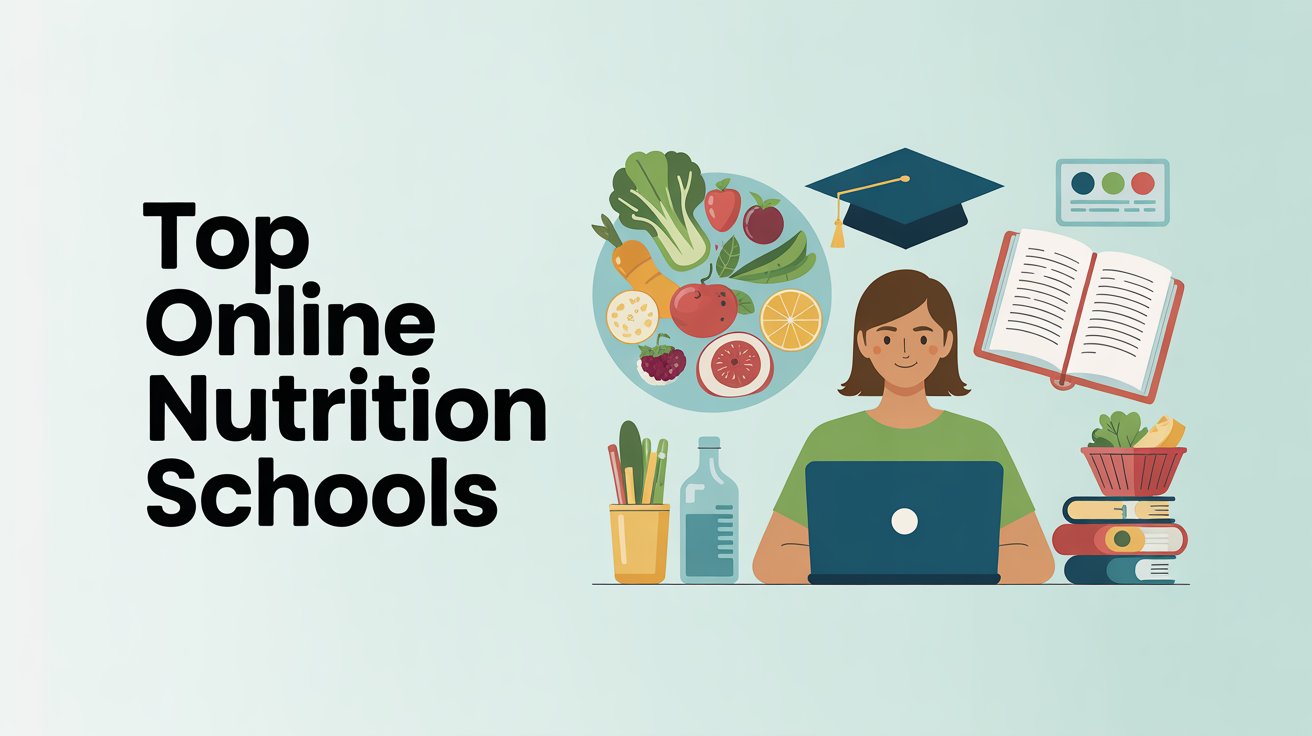Top Online Nutrition Schools – Accredited Programs for Career Growth and High ROI in USA, UK, Canada, and Australia
In today’s rapidly evolving world, nutrition plays a pivotal role in the overall health and well-being of individuals. With the rise of health-conscious individuals and an increasing awareness about wellness, pursuing a career in nutrition can be incredibly rewarding. However, obtaining a degree from the right institution is crucial to not only gain the necessary knowledge but also ensure career success and a high return on investment (ROI). Thankfully, many accredited online nutrition schools offer accessible, flexible, and comprehensive programs that cater to students across the USA, UK, Canada, and Australia.
These programs are designed to provide students with the knowledge needed to thrive in the ever-growing health industry, offering in-depth education about nutrition, dietetics, food science, and wellness. Moreover, with the flexibility of online education, individuals can access these top-tier programs from anywhere, making it an ideal option for both full-time workers and those looking to switch careers.
If you’re considering entering the field of nutrition or furthering your career, online nutrition schools may be the perfect solution for you. In this article, we will explore the best online nutrition schools, the essential knowledge you’ll gain, career opportunities, and how to ensure that the program you choose delivers the best ROI. Let’s dive in!

What Is a Healthy Diet? – Expert Insights from Online Nutrition Schools for Global Learners
A healthy diet is essential to maintain optimal health, prevent diseases, and improve overall quality of life. Online nutrition schools worldwide emphasize the importance of understanding the fundamental principles of a healthy diet. These schools equip students with the skills needed to create balanced and nutritious meal plans, taking into consideration the needs of diverse populations.
From exploring the macronutrients (proteins, carbohydrates, fats) to understanding micronutrients (vitamins and minerals), students in online nutrition programs gain valuable insights into how food affects the human body. Additionally, they learn about the importance of hydration, the role of fiber, and how different food groups contribute to overall health.
Nutrition experts frequently discuss the value of personalized diets, emphasizing that one-size-fits-all solutions are not effective. In fact, what works for one person might not work for another due to genetic, environmental, and lifestyle factors. As a result, nutrition students are trained to develop customized diet plans for individuals based on their unique needs, preferences, and health goals.
These programs also provide expert guidance on the latest trends in healthy eating, such as plant-based diets, low-carb or ketogenic diets, and intermittent fasting, among others. Students also gain insights into how to evaluate food trends critically and apply evidence-based practices to their work.
Key Tip: It’s essential to stay up-to-date with the latest dietary guidelines and research, as nutrition science is constantly evolving. Explore more details here → [Insert Program Link]
Rethinking Cancer: Key Learnings from the Book for Nutrition Students and Professionals
“Rethinking Cancer” is a profound resource for anyone in the nutrition or healthcare field. This book, authored by renowned experts, focuses on the relationship between cancer and diet, shedding light on how certain dietary habits can influence cancer prevention, management, and recovery.
For students and professionals in online nutrition programs, “Rethinking Cancer” offers a valuable perspective on how nutrition can be integrated into cancer care. The book challenges conventional views and encourages readers to think critically about the role of food in cancer treatment and prevention. By learning about these alternative approaches, students can broaden their knowledge and contribute more effectively to holistic health care.
Through online nutrition schools, students can gain a deeper understanding of cancer-related nutrition, including how specific foods and nutrients may support immune function, reduce inflammation, and help the body heal. Additionally, they will learn how to create nutrition plans that support individuals undergoing cancer treatment, ensuring that patients maintain strength and energy throughout their journey.
The lessons learned from “Rethinking Cancer” can also extend to those interested in cancer prevention. By promoting healthy eating patterns, such as increasing vegetable intake, consuming more antioxidants, and reducing processed foods, nutritionists can play an integral role in helping individuals reduce their cancer risk.
Key Takeaway: Whether you’re aiming for a career in oncology nutrition or general health, learning from resources like “Rethinking Cancer” will enrich your professional knowledge and enhance your career prospects. Explore more insights here → [Insert Book Link]
✅ Top Online Nutrition Schools & Rethinking Cancer DVD – Boost Knowledge and Career Growth
The “Rethinking Cancer DVD” is an educational resource that accompanies the book and offers in-depth interviews, case studies, and discussions from leading nutritionists, oncologists, and health professionals. For online nutrition students, this DVD serves as a practical tool to help them visualize the connection between cancer and diet while deepening their understanding of the topic.
Incorporating this resource into an online nutrition curriculum can be immensely beneficial for learners looking to specialize in oncology nutrition. The DVD provides real-life examples of how nutrition has played a significant role in cancer recovery, making it a valuable addition to any nutritionist’s toolkit.
Nutrition schools offering programs with such multimedia resources ensure that students gain a comprehensive understanding of cancer care, beyond textbooks and traditional learning. Moreover, students will develop critical thinking skills and be exposed to evidence-based practices used by experienced nutrition professionals.
Key Result: Expanding your knowledge base with multimedia tools like the “Rethinking Cancer DVD” can boost your career opportunities, particularly in niche areas like oncology nutrition. Explore further details here.

Understanding Food Labels – What They Really Mean for Healthy Choices and ROI in Nutrition Careers
Understanding food labels is one of the most important skills that nutrition students and professionals can acquire. Food labels provide a wealth of information about the nutritional content of products, and being able to decode them can empower nutritionists to make better dietary recommendations.
In an online nutrition program, students are taught how to read food labels with a critical eye, understanding everything from serving sizes to the ingredients list, nutrition facts, and potential allergens. By learning how to interpret these details accurately, nutritionists can help clients make informed decisions about the food they consume.
Key Insight: Nutrition professionals who can explain food labels in simple terms to their clients will have an edge in the market. This skill is highly valued in Tier One markets, where health-conscious consumers are increasingly looking for guidance.
Table: Key Information Found on Food Labels
| Label Information | What It Tells You |
| Serving Size | Helps you understand the portion size |
| Calories | Indicates the energy content per serving |
| Nutrients | Shows the amount of fat, carbs, protein, and fiber |
| Ingredients | Lists the components used in the product |
Key Tip: Make sure to check serving sizes before recommending food products to clients. Understanding these nuances will improve your professional reputation. Explore more details here → [Insert Program Link]
Why We Should All Eat More Organic Food – Insights by Organic Consumers Association
The Organic Consumers Association advocates for greater consumption of organic food, highlighting its numerous benefits for both personal health and the environment. Organic foods are grown without synthetic pesticides, fertilizers, or genetically modified organisms (GMOs), making them a healthier choice for consumers.
Online nutrition programs often emphasize the importance of organic food, teaching students how these choices contribute to better health outcomes, reduce exposure to harmful chemicals, and support sustainable farming practices. Additionally, students learn how to educate clients on the importance of selecting organic options, especially when it comes to highly pesticide-laden produce, such as fruits and vegetables.
Key Takeaway: As a future nutrition professional, advocating for organic food can help you align with the growing trend towards sustainable and health-conscious eating. Explore more insights here .

Organic Food Benefits – Expert Guidance for Students, Professionals, and Tier One Markets
Organic foods are often touted for their superior nutritional quality, including higher levels of antioxidants, vitamins, and minerals. Studies have shown that organic produce tends to have fewer pesticide residues and is less likely to contain antibiotic-resistant bacteria compared to conventional options.
For nutrition students, these benefits are important to know, as they form the basis of making dietary recommendations that prioritize both health and sustainability. Graduates from online nutrition schools equipped with this knowledge are highly sought after in Tier One markets like the USA, UK, Canada, and Australia.
Key Insight: Nutritionists with expertise in organic food can position themselves as trusted advisors, particularly in high-demand markets. Explore more organic food benefits here → [Insert Program Link]
To Buy or Not to Buy Organic? – Practical Tips and Checklist for Informed Nutrition Decisions
Deciding whether to purchase organic food can be a tough choice for many consumers, especially when considering cost. While organic options are often more expensive, they are sometimes worth the investment, particularly when it comes to foods that are consumed frequently or that carry high pesticide residue.
Online nutrition schools help students evaluate this dilemma by teaching them how to guide clients in making informed decisions based on factors such as cost, health benefits, and environmental impact.
Checklist for Buying Organic:
- Prioritize high-pesticide foods like strawberries, apples, and spinach.
- Assess the nutritional value of organic versus conventional options.
- Consider budget constraints and make organic choices when possible.
Key Tip: Providing your clients with a cost-benefit analysis will help them make informed decisions about organic food. Explore more details here → [Insert Resource Link]
Watch Our Educational Movie – Nutrition Insights for Online Learners and Enterprises
For online learners, gaining access to visual educational resources like documentaries and films can enhance understanding and retention of key concepts. Nutrition programs that include visual aids such as movies can help students visualize complex topics and gain a more practical understanding of nutrition and wellness practices.
Key Takeaway: Engaging with multimedia content can enrich your learning experience and help you connect with real-world nutrition scenarios. Explore more educational tools here → [Insert Movie Link]
FAQ Section
FAQ 1: What are the best online nutrition schools for career growth and high ROI?
The best online nutrition schools for career growth and high ROI offer accredited programs that are aligned with industry standards. They provide comprehensive training in areas such as dietetics, food science, and nutrition therapy. Programs like those offered by the University of California, Berkeley, and the University of Toronto are among the top choices. These schools have strong reputations, offer robust internship opportunities, and provide valuable career support to graduates.
FAQ 2: How much does it cost to attend top online nutrition schools in the USA, UK, Canada, and Australia?
The cost of attending online nutrition schools varies depending on the institution and location. On average, tuition fees range from $10,000 to $30,000 per year for a bachelor’s or master’s degree in nutrition. In the USA, institutions like New York University charge higher tuition, while schools in Canada and Australia tend to have slightly lower fees. Scholarships and financial aid may be available, so it’s worth exploring options.
FAQ 3: Which accredited online nutrition programs offer the best career conversion opportunities?
Accredited programs from schools like Purdue University and the University of Phoenix offer excellent career conversion opportunities. These programs focus on practical applications of nutrition knowledge and provide access to extensive career services, internships, and networking opportunities. Graduates often secure jobs in public health, clinical nutrition, and corporate wellness.
FAQ 4: What jobs can I get after graduating from an online nutrition school?
Graduates from online nutrition schools can pursue a wide range of careers, including clinical nutritionist, dietitian, public health nutritionist, food policy advisor, and wellness coach. Many also work in the food industry, health and wellness companies, or in government health agencies. Some graduates opt for private practice or freelance work.
FAQ 5: Is attending an online nutrition school worth it for ROI and career advancement?
Attending an online nutrition school can provide an excellent return on investment (ROI) and career advancement opportunities, especially in Tier One markets like the USA, UK, Canada, and Australia. With increasing demand for nutrition professionals, graduates can secure well-paying jobs in diverse industries, from healthcare to food policy. Additionally, the flexibility of online programs allows students to balance work and study.
FAQ 6: How does one compare online nutrition schools for quality, cost, and ROI?
When comparing online nutrition schools, consider factors like accreditation, curriculum, career support services, and internship opportunities. Quality programs will have strong industry connections and a comprehensive curriculum that prepares students for the workforce. Cost should be weighed against the potential career opportunities and earning potential post-graduation.
FAQ 7: What is the admission checklist for top online nutrition schools in Tier One countries?
The admission checklist typically includes a completed application form, proof of prior education (high school diploma or bachelor’s degree), transcripts, letters of recommendation, a personal statement, and possibly an interview. Some schools may also require specific prerequisites like courses in biology, chemistry, or psychology.
FAQ 8: Do online nutrition programs include internships or practical training for job readiness?
Yes, many top online nutrition programs include internships or practical training to ensure that students are job-ready. These experiences are valuable for building a professional network and gaining real-world experience. Internships can be completed remotely or at affiliated clinics, hospitals, or nutrition organizations.
FAQ 9: Which online nutrition schools offer scholarships or tuition savings for international students?
Several online nutrition schools offer scholarships or tuition discounts for international students. Institutions like the University of Toronto and the University of Sydney provide financial aid packages for international applicants. Additionally, many schools partner with external organizations to offer scholarships based on academic merit, financial need, or specific research interests.
FAQ 10: What industries are hiring graduates from online nutrition schools in the USA, UK, Canada, and Australia?
Graduates from online nutrition schools find employment in various industries, including healthcare, public health, food manufacturing, wellness, and education. Common employers include hospitals, health and fitness centers, wellness companies, government health agencies, and nonprofit organizations. Additionally, graduates may work in research, policy development, or private consulting.
